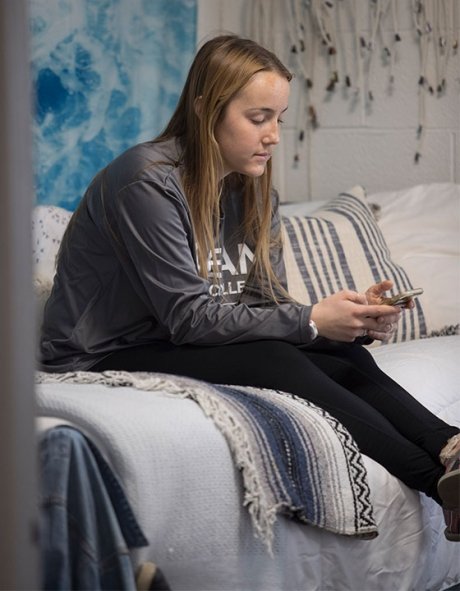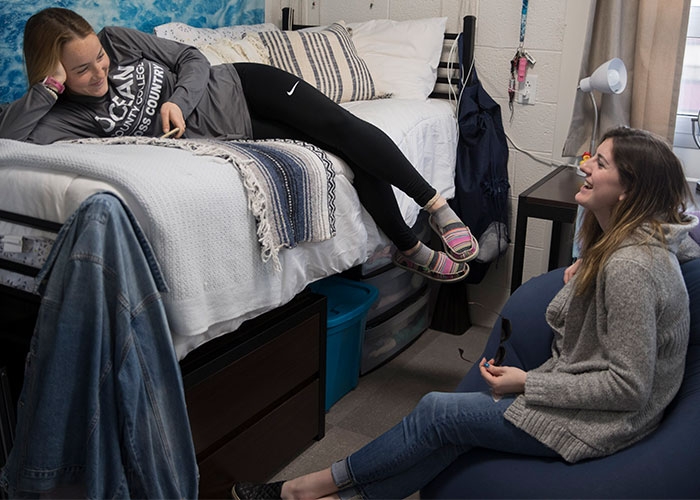2 Tips for Coping with Anxiety in College
- News & Events
- News
- 2 Tips for Coping with Anxiety in College

First-year college students are at the highest risk of developing depression and anxiety.
Being a first-year college student is an exhilarating time. You’re an emerging adult exploring who you are. You’re also trying to align who you are with a future career. Yet anxiety and depression can derail all that.
A 2021 study found that 1 in 3 first-year college students have or develop moderate to severe depression and anxiety.
“They begin to lose sight of why they came to college at all. They’re trying to clarify not only, ‘Why am I here in college, but why am I here in the world?’” says Julia Kamenetsky, licensed clinical psychologist at RIC’s Counseling Center.
Kamenetsky says that the same things that trigger anxiety and depression in college students are the same for all human beings. “We all have anxiety around doing well on our job – for a student, their job is their academics. And we all have anxiety around doing well socially.”
“Academically, students have a lot more autonomy in college,” Kamenetsky explains, meaning their teachers and parents aren’t checking up on them to make sure they’re getting their work done. “Though that autonomy may feel like freedom, it also brings with it more responsibility,” she says. “They’re now solely responsible for staying on top of their academics.”
At the same time, social disconnection is one of the challenges of a commuter school, she says. “At the Counseling Center, students consistently tell us that they feel disconnected. They say people take classes and leave, that they can’t find their community or group. This brings up a lot of anxiety and depression.”

“As human beings, we’ve been wired to be highly social animals,” she says. “Our brains are wired in such a way that if we feel disconnected from our community, we experience psychic pain such as anxiety and depression, and that’s normal. Anxiety and depression are signs of health. We’re reacting to the fact that we’re disconnected.”
If anxiety is triggered from not doing well academically and/or socially, the best ways to manage anxiety is 1) to seek academic support and 2) to seek social support, says Kamenetsky.
“I’d really like to see anxiety and depression reframed,” she says. “I suggest not looking at it as some negative thing that we need to get rid of. Anxiety and depression force us to look inward. It can lead to some real existential work around identity that can be very productive.”
Here are some major resources for academic and social support at RIC:
